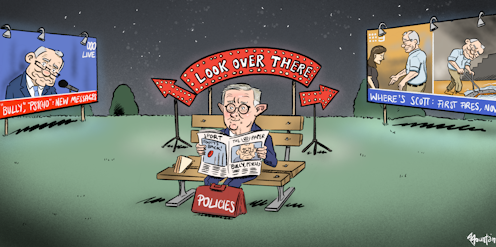How Labor can win the 2022 election
- Written by Chris Wallace, Associate Professor, 50/50 By 2030 Foundation, Faculty of Business Government & Law, University of Canberra
 Wes Mountain/The Conversation, CC BY-ND
Wes Mountain/The Conversation, CC BY-NDThis piece is the first in a two-part series. Its companion piece, How the Coalition can win the 2022 election, can be found here.
Every election is winnable, by either side, as the 2019 election showed. Labor enters this one in better shape, and with better prospects, than last time.
Providing it’s not...

















